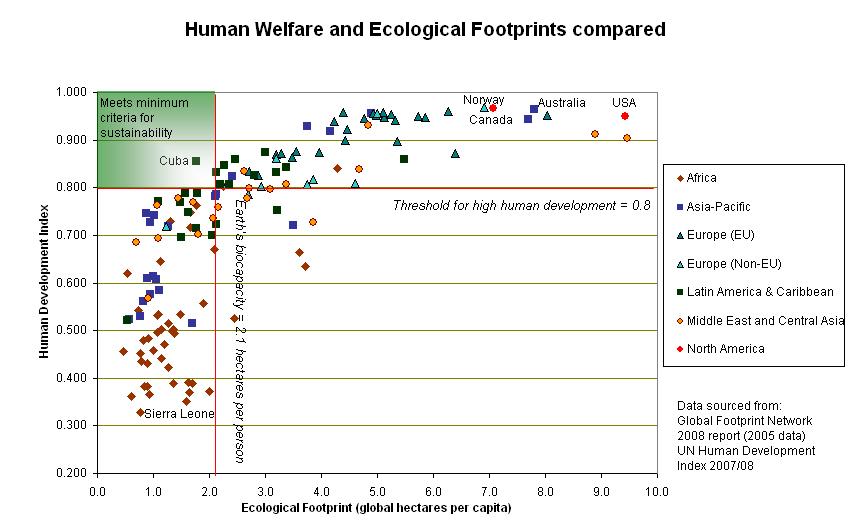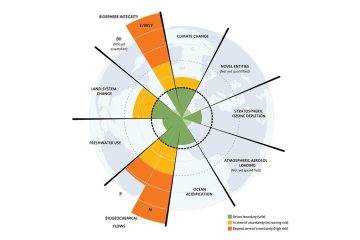In the vast expanse of the cosmos, our planet Earth stands as a precious oasis teeming with life and intricate ecosystems. As humanity treads the delicate balance between progress and preservation, the concept of planetary boundaries and ecological footprint emerges as a beacon of awareness in our quest for sustainability. Join us on a journey through the interconnected web of Earth’s limits and our ecological impact, as we explore the intricate dance between human activity and the resilience of our planet. Step into a realm where science meets stewardship, and where every footprint leaves a mark on the tapestry of our shared home.
Table of Contents
- Understanding Planetary Boundaries: A Framework for Sustainable Living
- The Impact of Ecological Footprint on Planetary Health
- Strategies to Reduce Your Ecological Footprint
- Building a Resilient Future: Balancing Human Needs with Planetary Limits
- Q&A
- Wrapping Up

Understanding Planetary Boundaries: A Framework for Sustainable Living
Exploring the delicate balance between human activities and the environment opens a window into the concept of planetary boundaries. These boundaries outline the safe operating space for humanity in terms of ecological stability. By understanding and respecting these limits, sustainable living practices can be implemented, paving the way for a harmonious coexistence with our planet.
One way to visualize the impact of human activities on the environment is through calculating the ecological footprint. This measurement quantifies the resources consumed and waste generated by individuals, communities, or nations. By reducing our ecological footprint through conscious choices like consuming less energy, minimizing waste, and supporting eco-friendly initiatives, we can actively contribute to preserving our planet’s health for future generations.

The Impact of Ecological Footprint on Planetary Health
Our planet’s delicate ecological balance is facing unprecedented challenges due to the ever-increasing ecological footprint left by human activities. The repercussions of exceeding planetary boundaries are far-reaching, affecting biodiversity, ecosystems, and ultimately, the overall health of our planet.
Understanding and minimizing our ecological footprint is crucial in preserving the environment for future generations. By embracing sustainable practices, conserving resources, and promoting biodiversity, we can work towards restoring the delicate balance of nature. Small individual actions collectively contribute to a significant positive impact on planetary health, ensuring a more sustainable future for all.

Strategies to Reduce Your Ecological Footprint
In our quest to tread lightly on our planet, embracing sustainable practices is crucial to minimizing our impact on the environment. By making conscious choices in our daily lives, we can gradually reduce our ecological footprint and contribute to a healthier Earth for future generations. One effective strategy is to **embrace plant-based diets** that require fewer resources to produce compared to animal-based diets. Opting for locally sourced, organic produce not only supports local farmers but also helps reduce carbon emissions associated with transportation.
Another impactful way to reduce your ecological footprint is by embracing renewable energy sources. Transitioning to solar or wind energy for your home can significantly decrease your reliance on fossil fuels, thereby lowering your carbon footprint. Additionally, reducing water waste by fixing leaks, using water-saving appliances, and being mindful of your water consumption can conserve this precious resource. Small changes in our habits can lead to significant positive effects on our environment.
| Strategy | Impact |
|---|---|
| Plant-based diets | Less resource-intensive |
| Renewable energy sources | Reduce reliance on fossil fuels |
| Water conservation | Preserve water resources |

Building a Resilient Future: Balancing Human Needs with Planetary Limits
In the quest to strike a delicate balance between meeting the needs of humanity and respecting the limits of our planet, it becomes imperative to consider the concept of planetary boundaries and ecological footprints. **Fostering a harmonious relationship between what we require as a species and what the Earth can sustainably provide is paramount for a resilient future.**
Understanding the interconnectedness between human activities and environmental impacts is key in navigating the intricate web of coexistence on our shared planet. By being mindful of the ecological footprints we leave behind and the boundaries we must not exceed, we pave the way for a future where prosperity and sustainability go hand in hand.
| Planetary Boundaries | Ecological Footprint |
|---|---|
| Defined limits within which humanity can operate safely | The collective impact of human activities on the environment |
| Regulate Earth’s life support systems | Measures humanity’s demand on nature |
Q&A
Q: What are planetary boundaries, and how do they relate to the ecological footprint?
A: Planetary boundaries refer to the limits within which humanity can safely operate to maintain Earth’s stability. These boundaries encompass various environmental factors such as climate change, biodiversity loss, and freshwater use. The ecological footprint, on the other hand, measures humanity’s impact on the planet by assessing how much resources we use compared to how much the Earth can regenerate. By understanding and respecting planetary boundaries, we can ensure that our ecological footprint remains sustainable for present and future generations.
Q: How can individuals reduce their ecological footprint to help respect planetary boundaries?
A: Individuals can reduce their ecological footprint by making conscious choices in their everyday lives. Simple actions like reducing energy consumption, recycling, using public transport, and consuming locally sourced food can significantly lower one’s ecological impact. By being mindful of our actions and consumption patterns, we can contribute to respecting planetary boundaries and preserving the health of our planet.
Q: Why is it important to stay within planetary boundaries for the well-being of future generations?
A: Staying within planetary boundaries is crucial for the well-being of future generations as it ensures the sustainability of Earth’s resources and ecosystems. By respecting these boundaries, we can safeguard the planet’s capacity to support life and maintain a balance that allows for continued human prosperity. Failing to stay within these boundaries could lead to irreversible damage to the environment, making it essential for us to act responsibly and prioritize the long-term health of our planet.
Wrapping Up
As we navigate the intricate web of planetary boundaries and ecological footprints, it becomes increasingly evident that our actions today significantly impact the world we leave for future generations. By embracing sustainable practices and making conscious choices, we can strive to tip the scales in favor of a harmonious coexistence with our planet. Let us embark on this journey together, mindful of the delicate balance that sustains life on Earth. Remember, each step we take towards environmental stewardship brings us closer to a brighter, more sustainable tomorrow. Thank you for exploring the depths of planetary boundaries and ecological footprints with us. Let’s continue to tread lightly on this precious planet we call home.



0 Comments